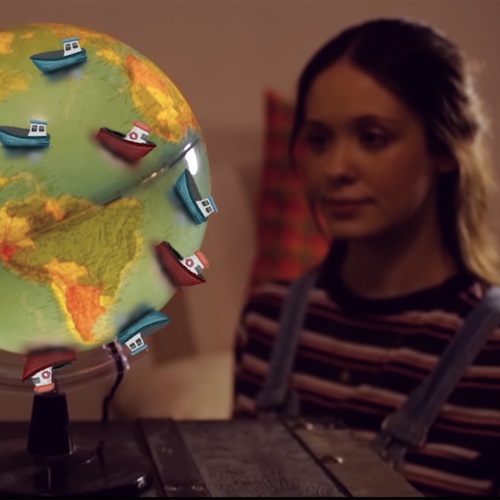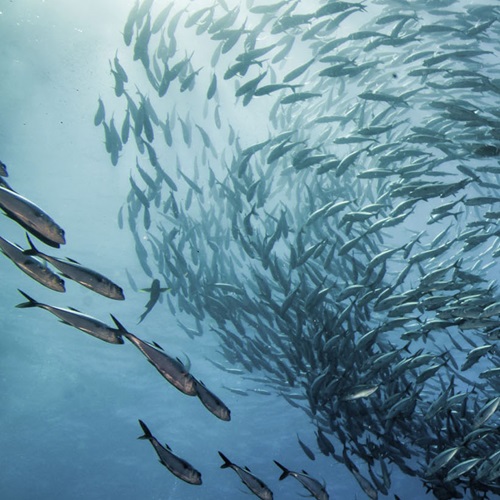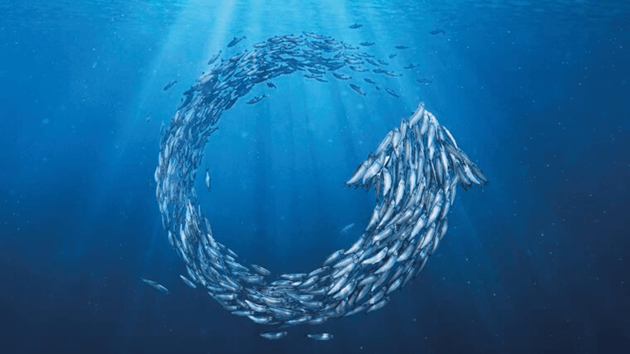In this topic we dive deeper to take a closer look at the problem of plastics in the ocean and how the Marine Stewardship Council is working to help the fishing industry reduce the amount of plastic that ends up in the sea.
Dive in and explore
This topic is structured differently to other topics with a greater emphasis on student directed and inquiry-based learning; and includes material adaptable for levels 5 - 8.
Learners are encouraged to
- Investigate the issue
- Explore different opinions and perspectives on the issue
- Complete research tasks to deepen understanding
- Consider and justify their own viewpoint
- Explore solutions and determine possible actions
- Select, carry out and evaluate the effectiveness of an action to help alleviate the issue
- Share findings
Overarching Focus Question
How do I research and present findings on a contemporary ocean sustainability issue?
.tmb-large1920.jpg?Status=Master&Culture=en-AU&sfvrsn=1fbf383c_1)
Ghost Fishing in a Plastic Ocean
This case study inquires into the issue of plastic pollution in the sea, particularly ghost fishing and fishing related pollution.
🎚 Level: 5-8
📚 Includes: Facilitated and self-directed learning activities and an opportunity for learners to share their findings
✍ Curriculum areas: Science, Pūtaiao, Social Studies (Place and Environment), Tikanga-ā-iwi, Geography, Hauora
🌟 Key competencies: Thinking; Managing self; Relating to others; Participating & contributing
🔤 Keywords: Plastic; Ghost fishing; Biodegradable; Monofilament
📌 Location: Indoors & Outdoors
⏭ Next steps (this topic): Coming soon
📚 Prior learning: Sustainable Fishing; Blue Fish Tick; Fishing Methods; Aotearoa Business of Fishing Today
Dive in and explore the problem of plastic pollution at sea, with a focus on the contribution of fishing related plastic debris. Lost and discarded fishing gear contributes significantly to the plastic problem at sea and can cause major problems for ocean life.
Focus Questions:
How do I research and present findings on a contemporary ocean sustainability issue?
Why are ghost fishing and plastics such a problem in our oceans? How can we solve this problem?
Materials:
Slide set PLASTIC OCEAN ALL SLIDES
Device with access to internet
Something to write with and on
Plastic Oceans: Viewpoints Worksheet
Plastic Oceans: Group Project Outline
Activities include:
CONSIDER what we already know about fishing and plastic at sea (slide 9)
WATCH film clips about plastic and answer the questions provided (slide 11)
DISCOVER and share surprising new facts about plastics from Plastics NZ
EXPLORE how and why lost fishing gear and plastics are a problem at sea (slide 13)
RESEARCH and DISCUSS different viewpoints about what is good and bad about plastics (slides 14-16)
EXPLORE your own thinking about whether “the problem is marine litter and not plastics” (slide 15)
COMPLETE the Plastic Oceans: Viewpoints WORKSHEET
INVESTIGATE where the ocean garbage goes and the formation of ocean garbage patches (slides 19-20)
Use the Science Learning Hub’s ocean plastic simulator to track the movement of plastic (slides 18-19)
Adopt a beach and take a FIELD TRIP to clean up your beach and record what you find (slide 20)
DISCOVER more about the Marine Stewardship Council and how they are helping deal with the problem of fishing related plastic litter and ghost fishing (slides 21 – 22)
EXPLORE solutions and possible ACTIONS that can help address the problem of ocean garbage and fishing related plastic pollution (slides 23 – 29)
RESEARCH or DEVELOP your own solution to ghost fishing polluting our oceans and use Powtoon, Slides or similar to create a 2-3 minute explainer about your chosen solution (slide 29 and Plastic Oceans: Group Project Outline)

Back to Topic 8
Taking action, values, choice & responsibilities - Ko āu te moana, Ko te moana ko āu

Topic Selector
Te Kawa o Tangaroa: all topics
Explore more

Featured{{item.Headline}}
{{item.Description}}
Sign up for teacher updates
Each quarter, we'll feature the latest education resources, upcoming calendar dates, competitions and the very best ocean-related stories.

